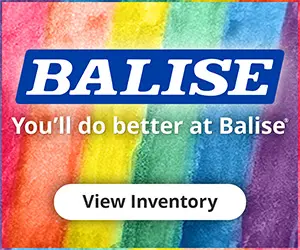How to Qualify and Comply with Massachusetts Requirements
Certified Diverse Businesses
By Julie A. Dialessi-Lafley, Esq. and Britaney N. Guzman-Bailey, Esq.
It is no secret that running a profitable business can be difficult. It can be even more difficult, however, for women, minorities, veterans, persons with disabilities, and members of the LGBTQ+ community, who often face systemic obstacles to achieving sustainable economic status for their businesses.

Julie Dialessi-Lafley
 Massachusetts has created various public programs for certain diverse business enterprises to address this issue, such as the state’s certification program through the Supplier Diversity Office (SDO).
Massachusetts has created various public programs for certain diverse business enterprises to address this issue, such as the state’s certification program through the Supplier Diversity Office (SDO).
The SDO currently certifies the following business categories: Minority (MBE), Women (WBE), Portuguese (PBE), and Veteran (VBE). The SDO also has agreements with third-party organizations to certify additional business categories: Service-disabled Veteran (SDVOBE), Lesbian, Gay, Bisexual, and Transgender (LGBTBE), and Disability-owned (DOBE).
The qualifications and requirements for each are easily found on the Commonwealth’s website. For a quick list, an interested business may review the SDO certification program at www.mass.gov/certification-program-for-sdo.
In addition to certifying businesses, the SDO also provides certified diverse businesses with networking opportunities to market their goods and services to potential buyers. The SDO certification may give business enterprises a competitive edge when seeking contracts with the government because the SDO sets benchmark spending goals for state-agency buyers to purchase goods and services from certified business.
Additionally, applica nts enjoy the marketing benefit of being listed in the SDO’s directory of certified businesses. A complete list of SDO-certified businesses can be found again at the Commonwealth’s website.
For certification, a business entity must be both owned and controlled by eligible persons and or principals, be free of any conversion rights, be independent, and be ongoing. An eligible person is an adult permanent resident of the U.S. who is a minority, veteran, person of Portuguese origin, LGBT individual, person with a disability, and/or a woman. An eligible principal must own at least 51% of the business enterprise or, if a nonprofit organization, must be in control of the organization.
Clarification of the categories is helpful and may result in being eligible based on more than one criteria. For example, in order to qualify as a minority, one is defined as an Indian or Indigenous, Asian, Black, Hispanic, or Portuguese person.
Careful Consideration
The Commonwealth looks carefully at all requirements. In order to meet the requirement of being free from conversion rights, neither the applicant nor the eligible principals may be subject to a scheme that, if exercised, could result in diluting the ownership of the eligible principals below 51% or cause the entity to not be independent or not controlled by eligible principals.
Under the independence requirement, the applicant cannot be dependent or affiliated with, or influenced by, legally or in practice, any other business enterprise or organization regarding its day-to-day or long-term affairs. The applicant cannot rely on or regularly utilize employees or workforce who, while performing work for the applicant, are in the course of employment with or under the direct control of another person or business entity other than the applicant. The SDO will deem an applicant not independent if the applicant presents insufficient evidence of having the capability to perform, with its own workforce, equipment, and facilities, the work it contracts to perform.
As to the ongoing requirement, the applicant must show that it was not formed for the of taking advantage of the certification program. Reorganization and/or ownership changes that subsequently render an applicant eligible for the SDO certification that occurred within the 12 months prior to application will create a rebuttable presumption that the changes were made to take advantage of the program. In order to rebut the presumption, the applicant must show that it has available resources that are appropriate for a business of its type and that it actively seeks out contracts for services. Essentially, demonstrating ongoing business and having financial resources will demonstrate the legitimacy of the business seeking certification.
Part of the application process includes attendance at a mandatory, two-hour workshop before applying for the SDO certification. It is only after attending the workshop that an applicant may gain access to the application portal. The certification process may take up to 60 days following the submission of an application.
In order to determine if a business may qualify before undergoing the rigor of the workshop and application process, the SDO offers a self-assessment tool for anyone unsure if their business may qualify for a SDO certification. The assessment can be found at www.mass.gov/forms/take-the-certification-self-assessment.
SDO certification typically lasts for three years, at which point the certification will automatically expire. Companies are removed from the SDO directory after expiration unless certification is renewed in a timely manner.
If there have been no material changes regarding the business, the applicant should submit a renewal affidavit attesting to the same and comply with any requests for information from the SDO certification specialist. Changes in ownership, control, or independence are some of the circumstances identified as a material change; naturally, if there have been material changes, the applicant must notify the SDO. The applicant has within 30 days of the change to notify the SDO or risk decertification.
Opportunity Knocks
As of June 5, 1,924 Massachusetts businesses are registered as WBE, 1,442 MBE, 576 DBE, 111 VBE, 74 SDVOBE, 60 PBE, 44 LGBTBE, and 20 DOBE.
Of these registered businesses, 154 of them are nonprofits, and the major business industries include service, construction, goods, technology, transportation, and manufacturing. Although 3,050 Massachusetts businesses are certified, only 223 of those businesses are registered from Hampden County, 69 from Hampshire County, 52 from Berkshire County, and 16 from Franklin County.
There is a lot of opportunity for a registered business, and the numbers indicate there are numerous businesses in the local footprint that would likely qualify but have not registered yet. In addition to the publicity around the certification, the certification also provides the business access to exclusive contracts and subcontract opportunities to help its bottom line. Clearly, well-positioned businesses and entrepreneurs understand getting an edge on the competition may help secure their foothold in the marketplace, and being a certified diverse business in the Commonwealth may be one such way to stand out.
Becoming a certified diverse business may also result in new networking and marketing opportunities and expanded opportunities to contract with the Commonwealth of Massachusetts. As the requirements for certification may differ based on the location of the business and business type, it is important that you obtain legal advice for your business on its potential eligibility and to assist through the certification and/or recertification process.
Julie Dialessi-Lafley is a shareholder and Britaney Guzman-Bailey is an associate at Bacon Wilson, P.C.





